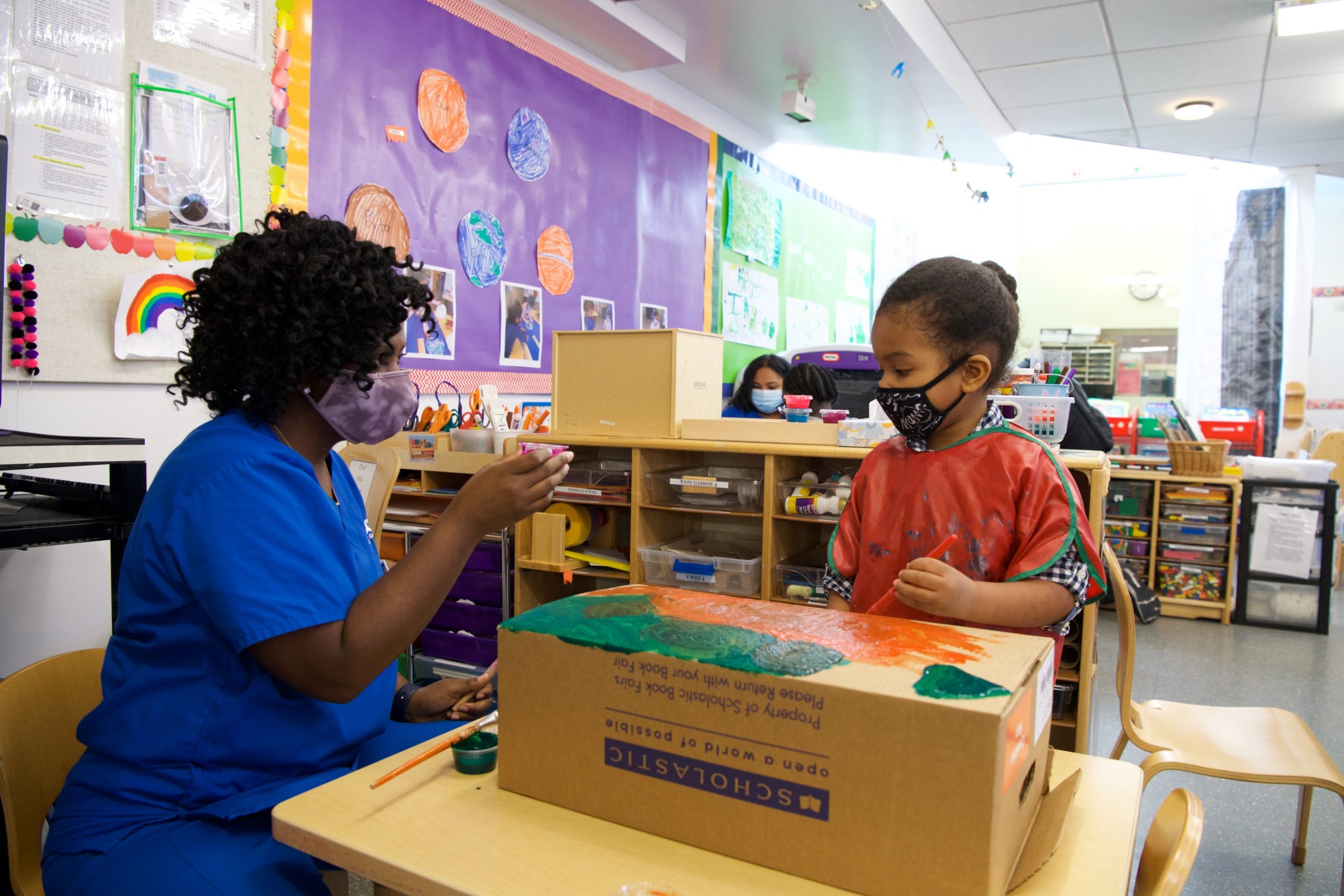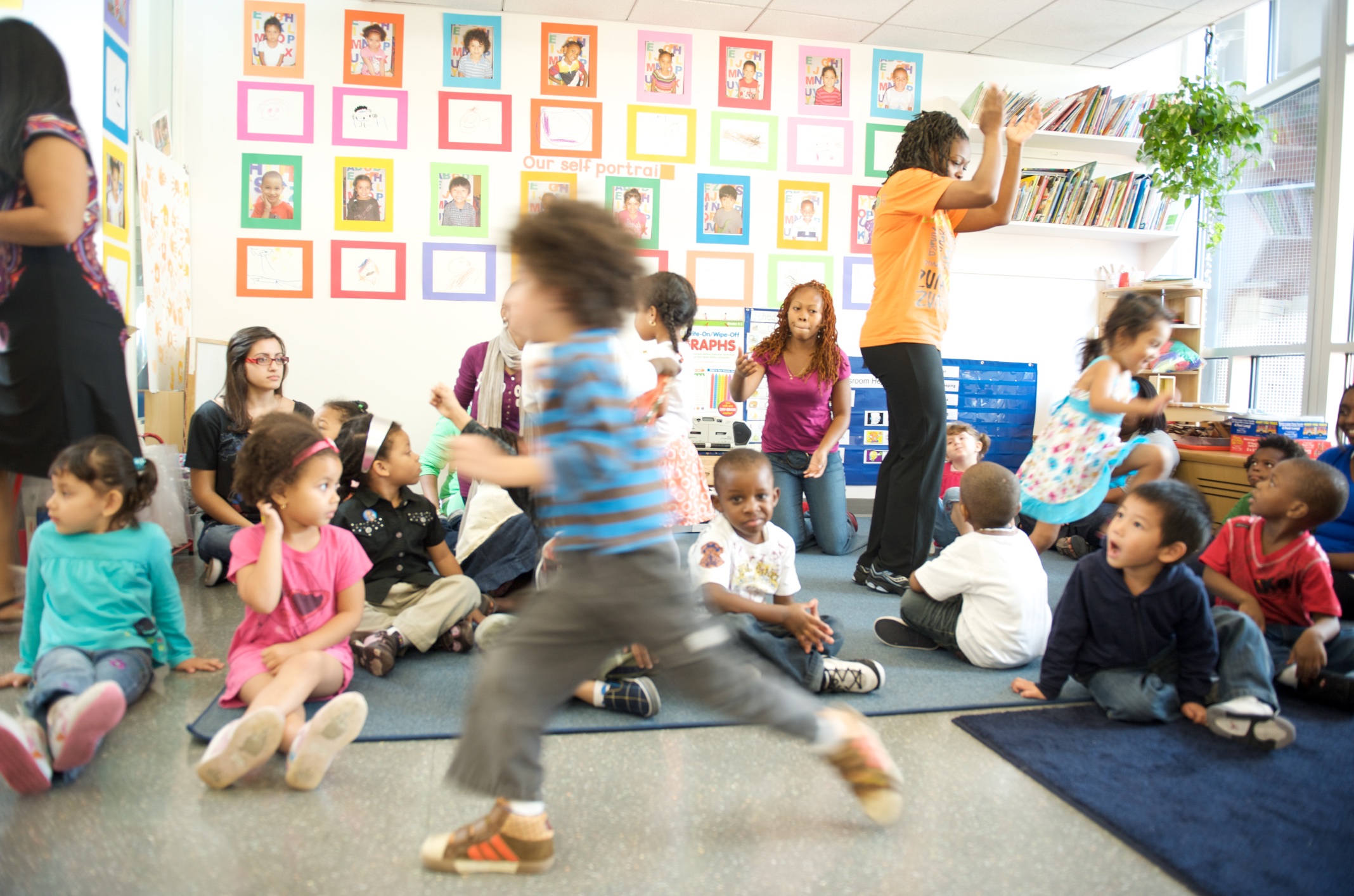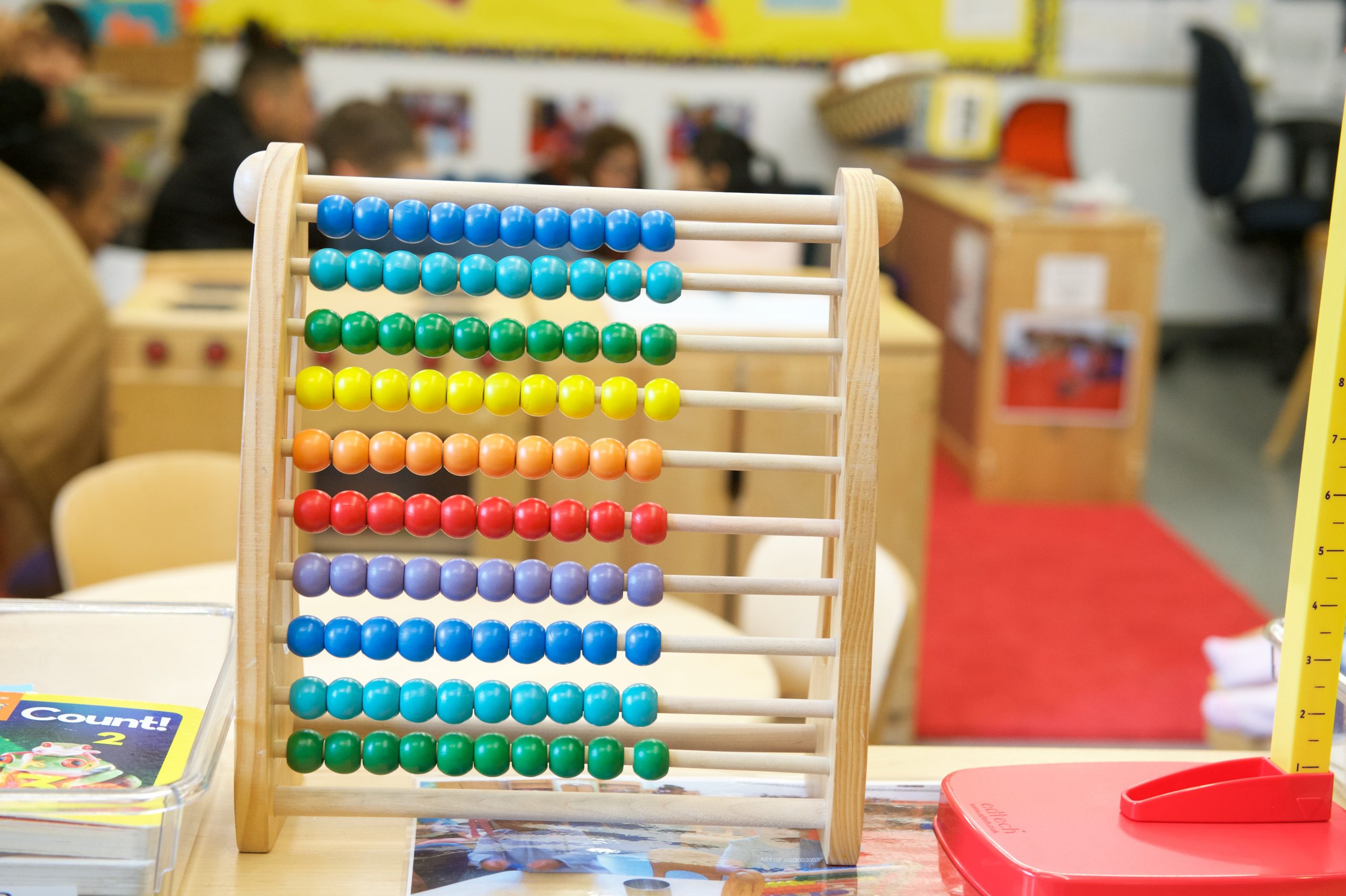
December 1, 2020
New findings from a team of faculty researchers at Borough of Manhattan Community College (BMCC/CUNY) highlight the need to improve infant-toddler teacher training through specialized curricula, skill-building experience and improving the credit-transfer process from two-year to four-year programs that lead to early childhood teacher certification.
Teacher Education Professors Jennifer Gilken, Jennifer Longley and Jillian Crosby have received $85,000 from the Heising-Simons Foundation through the New York City Early Childhood Research Network.
“Our project had two purposes,” says Gilken. “These are to examine the scope of course content and fieldwork opportunities focused on infants and toddlers provided in New York State undergraduate programs, and to analyze the teacher education pipeline, career pathways and professional development opportunities afforded to infant-toddler educators and leaders.”
The team’s research points out the shortage of infant-toddler teachers in New York. It also defines barriers to training early educators in the unique skill sets they need to work with children from birth to age three.
As Gilken explains, these barriers include the lack of specialized college curriculum and coursework, faculty expertise and practical experience in building needed skills.
Another barrier is the difficulty many graduates experience as they attempt to transition credits from two-year to four-year programs that lead to early childhood teacher certifications relating to the instruction of children from birth to grade two.
In addition, she says, “Given that the first three years of a child’s life are the most critical in providing a foundation for intellectual, social and emotional skills, the lack of specialized training and practical experience for infant and toddler educators does not bode well for New York’s early childhood system and the children and families it serves.”
 Working with infants and toddlers requires a special skill set
Working with infants and toddlers requires a special skill set
Being able tobuild relationships, individualize instruction and routines, understand child development and work collaboratively with families are vital skills that infant-toddler teachers use daily to facilitate learning, Gilken says.
“College students interested in working with infants and toddlers enter teaching and training programs that are largely geared toward educating preschoolers,” she says. “There is a lack of specialized infant-toddler coursework and curriculum. There is also an absence of faculty experienced in teaching it, and opportunities to practice skill-building in real-life settings.”
While two-year college programs are more likely to focus on infant and toddler care and curriculum, students find their education marginalized when they seek to transfer credits to four-year colleges that generally do not prioritize infant-toddler instruction, Gilken says. “This perpetuates inequities by restricting access to higher education.”
Ironically, certified infant-toddler teachers are qualified to work with any age group in early childhood settings, while those certified for preschool instruction are not appropriatelytrained to work with infants and toddlers.
 Recommendations support classroom instruction and teacher certification
Recommendations support classroom instruction and teacher certification
The study recommends eight core competencies that training programs should use to adequately prepare teachers to work with infants, toddlers, and families.
These include holistic child development, relationship-based practices, a focus on the sequence “ Observe, assess and communicate,” family-centered practices, creating positive environments, reflective and ethical practices, culturally sustaining practice and hands-on fieldwork.
“Using these competencies to work with infants, toddlers, and their families will support educators for both certification and their work in the classroom,” says Teacher Education Professor Jillian Crosby.
The team’s findings assert that New York can improve its early childhood undergraduate programs by increasing infant-toddler course content and learning experience in classrooms with children under three, as well as by building faculty capacity to teach infant-toddler development and curriculum.
The team also recommends that New York State improve its career pathways by facilitating seamless transfer between two- and four-year colleges and providing better credentialing opportunities.
“The highest quality pre-K programs cannot mitigate the impacts of a low-quality infant-toddler program,” says Teacher Education Professor Jennifer Longley. “And if we don’t have a high-quality, prepared workforce, we won’t have high-quality programming.”
This research was made possible by The New York City Early Childhood Research Network, a unique partnership of researchers from the city’s higher education institutions who work with the New York City Department of Education, New York City Administration for Children’s Services, New York City Department of Health and Mental Hygiene,and the Mayor’s Office for Economic Opportunity to study the implementation of New York City’s early childhood system and use the knowledge gained to improve instruction and outcomes for all children. This study was funded by the Heising Simons Foundation. The New York City Early Childhood Research Network is a project of the New York Early Childhood Professional Development Institute at the City University of New York and is funded by Early Childhood Partners NYC, Foundation for Child Development, Heising-Simons Foundation, and the W. Clement & Jessie V. Stone Foundation.
STORY HIGHLIGHTS
- New research from BMCC Professors Jennifer Gilken, Jennifer Longley and Jillian Crosby highlights the need to improve infant-toddler teacher training
- Their findings address the lack of specialized college coursework and skill-building experience, as well as the difficulty transitioning credits from two-year to four-year programs that lead to early childhood teacher certifications for birth to grade two instruction
- This research was made possible by The New York City Early Childhood Research Network and others

